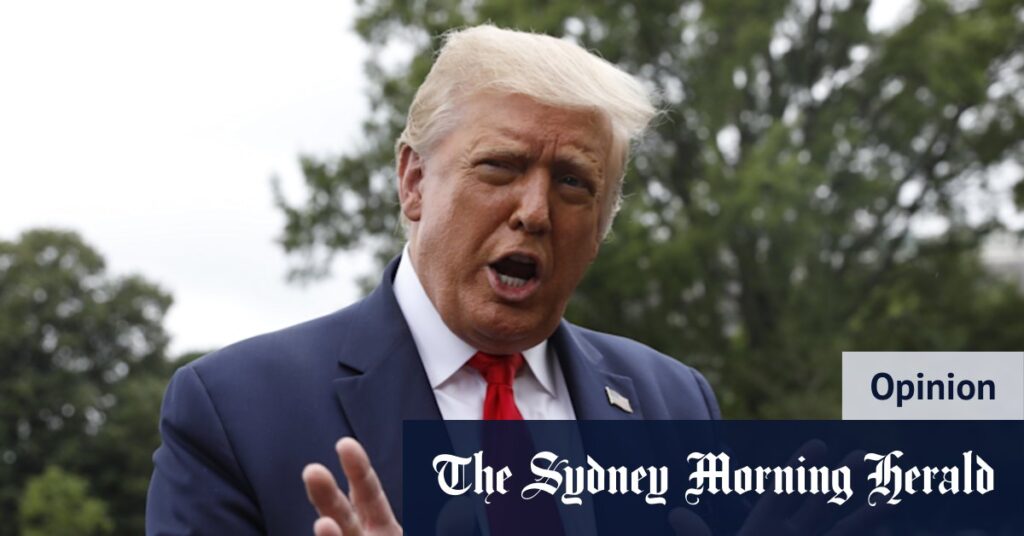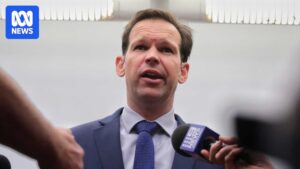
For the past eight months, TikTok has been operating in the United States under a cloud of legal uncertainty, sustained by a series of executive orders from former President Donald Trump. These orders themselves may have skirted legal boundaries. However, a breakthrough appears imminent as the Chinese-owned app is on the brink of being legalized.
On Tuesday, U.S. and Chinese negotiators announced a “framework” agreement that could lead to the sale of ByteDance’s U.S. operations to a coalition of new American investors and existing U.S. shareholders. This development follows intense discussions between U.S. Treasury Secretary Scott Bessent and U.S. Trade Representative Jamieson Greer with their Chinese counterparts. Bessent noted that the Chinese delegation presented “a big list of asks,” which they framed as compensation.
“With the leverage that President Trump had given Ambassador Greer and myself, we were able to disabuse them of the notion that we had room for big gives,” Bessent stated.
Trump and China’s President Xi Jinping are scheduled for a critical discussion on Friday to finalize the deal. In a bid to buy more time, Trump issued his fourth executive order this year, instructing the U.S. Attorney General to refrain from enforcing a bipartisan law passed by Congress last year. This law mandated ByteDance to divest its U.S. operations to a non-Chinese owner within a year.
The TikTok Saga: A Political Priority
The emphasis Trump and his administration placed on the TikTok issue has been one of the saga’s most intriguing aspects. The initial deadline for compliance expired on January 19, the day before Trump’s inauguration. Yet, on his first day in office, Trump signed an executive order granting TikTok a reprieve. This was a stark reversal from his earlier support for a U.S. ban on the app.
Trump’s shift in stance may be attributed to his belief that TikTok and its 170 million U.S. users played a role in garnering Gen Z support during the previous election. He has publicly acknowledged having a “very good experience” with the app during his campaign. Additionally, Jeffrey Yass, a significant ByteDance shareholder and a major donor to Trump’s campaign, and ByteDance CEO Shou Chew’s presence at Trump’s inauguration, have raised eyebrows.
Security Concerns and Legislative Challenges
The U.S. Congress passed legislation requiring TikTok to be sold or shut down due to concerns over its potential use by China to influence American public opinion through misinformation or divisive content. ByteDance’s lobbying efforts, which included mobilizing TikTok users to flood congressional phone lines, did little to allay these fears.
China’s response, which included imposing export controls on TikTok’s algorithm and asserting national security laws, further fueled apprehensions. These laws empower the Chinese government to access data from Chinese companies, adding another layer of complexity to the negotiations.
“Beijing imposed export controls on the algorithm and other intellectual property that enables the app to choose what material to put before individual users,” noted a source familiar with the discussions.
Despite these challenges, ByteDance has been unable to sell TikTok or grant U.S. buyers access to its algorithm without Chinese government approval. Now, it seems that approval may have been secured, albeit not for the straightforward transaction Congress initially envisioned.
The Proposed Deal and Its Implications
The framework agreement outlines a consortium involving Oracle, which hosts TikTok’s U.S. user data, venture capital firm Andreessen Horowitz, and private equity firm Silver Lake Management. These entities, along with existing U.S. investors in ByteDance, would own approximately 80% of a newly formed U.S. entity. ByteDance would retain a 19.9% stake, and the U.S. business would have American directors, including one appointed by the U.S. government.
This move represents a significant shift in the negotiations, elevating the fate of an app known for short, quirky videos to a matter of national importance. All U.S. data would be stored on American servers, with users transitioned to a new app developed specifically for the U.S. market.
“China’s officials say that ByteDance will license its algorithm and other intellectual property to the U.S. company,” revealed an insider.
However, questions remain about ByteDance’s access to U.S. user data. While the company is keen for U.S. content to be shareable globally, this could necessitate some form of ongoing access to U.S. content, if not the underlying data.
Trump’s latest executive order grants negotiators and potential American TikTok shareholders another three months to finalize the deal’s details. Congress will likely need to ratify the agreement and amend or repeal existing legislation, ensuring intense scrutiny of the new ownership structure, ByteDance’s ongoing relationship, algorithm control, and data security.
Trump’s backing might persuade Republican congressional majorities to approve the deal, though bipartisan China hawks could present obstacles. The TikTok saga underscores the unusual priority Trump and his administration have accorded this issue.






